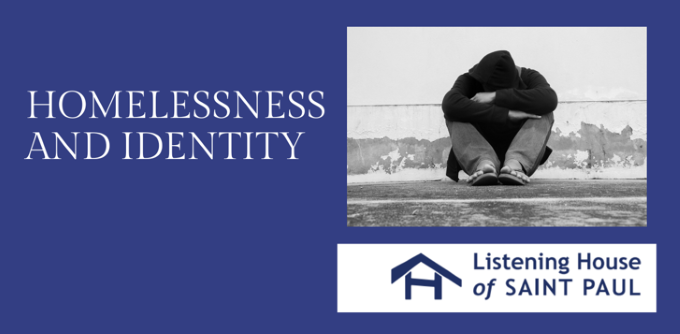Homelessness and Identity
Identity can be looked at as how we see ourselves and how we think others see us. It’s one of those pesky but critical attributes often found at the heart of serious things like World Wars or, on the other hand, most cheesy soap operas.
Understanding how identity works can be a challenge. Plenty of research has been done by lots of extremely educated people. Still, it sometimes feels like the most they can agree on is that “it’s complex.”
Many factors, of course, make up a person’s identity. But when you’re homeless, that aspect of your life can understandably become dominant in how you see yourself.
Studies find that unhoused individuals may simply hide that part of their identity. They’ll avoid discussing it, and will do everything they can not to give the appearance of someone who is homeless.
An encouraging sign is that there is research showing that treating people with respect and dignity can help restore damaged identity and create a sense of belonging that can help to start building pathways out of homelessness.
So, Listening House’s approach for more than 40 years — providing support to folks who find themselves unhoused — is not just how we feel people should be treated, but can also be a key to providing a path out of homelessness. It’s why we believe in Radical Hospitality.
This article was originally published in Listening House’s Spring 2024 Newsletter.
See all Listening House’s recent newsletters
